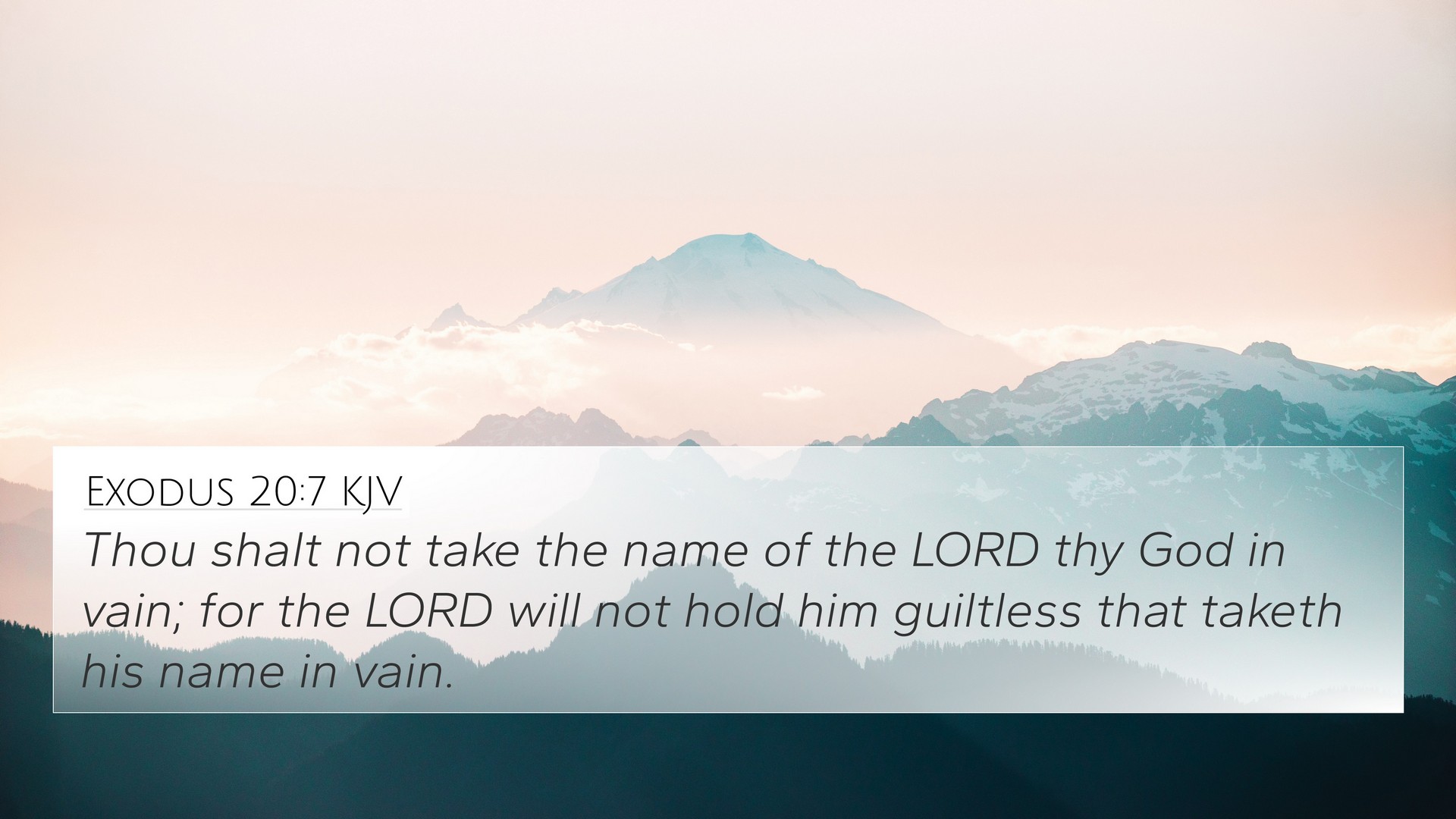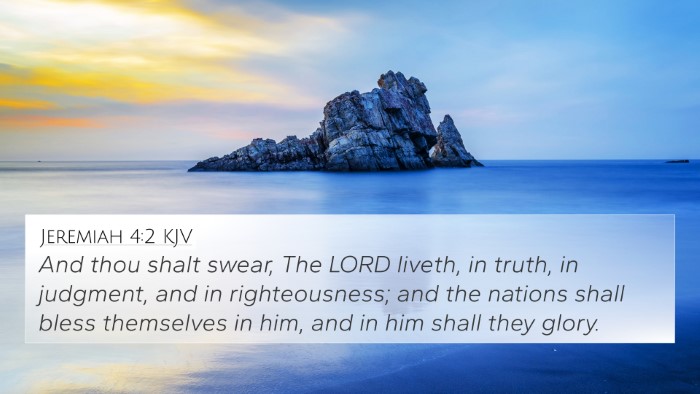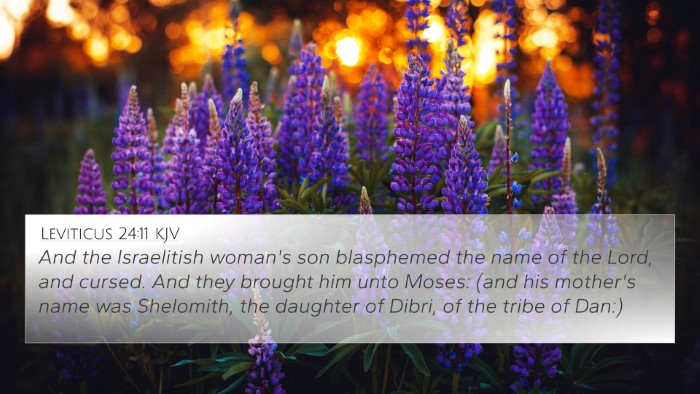Understanding Exodus 20:7
Verse: "You shall not take the name of the Lord your God in vain, for the Lord will not hold him guiltless who takes his name in vain." (Exodus 20:7, ESV)
Summary and Interpretation
Exodus 20:7 is the third commandment given to Israel and emphasizes the sanctity of God's name.
The prohibition against taking the Lord's name in vain underscores the importance of reverence and respect in the believer's relationship
with God. To take God's name in vain means to use it lightly or irreverently, applying it to meaningless or deceitful purposes.
Insights from Commentaries
-
Matthew Henry:
Henry emphasizes that this command serves as a reminder of God's holiness.
The misuse of God's name can lead to false swearing and blasphemy,
which tarnishes the integrity of a person's profession of faith.
Henry cautions against trivializing God's name and encourages believers to uphold its significance in worship and daily life.
-
Albert Barnes:
Barnes notes that taking the name of the Lord in vain is a serious offense,
as it is not merely about words but the intent behind them. He asserts that God’s name reflects His character,
and believers are called to honor that character in their speech and actions.
Barnes also connects this commandment with the need for authenticity in one's faith.
-
Adam Clarke:
Clarke offers a historical context, suggesting that the commandment was designed to protect the people from the tendency to abuse sacred names in
magical or superstitious practices. He argues that God's name should only be invoked with sincerity and truth, indicating a need for genuine faith.
Bible Cross-References
Exodus 20:7 is connected to several other biblical passages that elaborate on the significance of God's name:
- Leviticus 19:12: "And you shall not swear by my name falsely, and so profane the name of your God: I am the Lord." This reinforces the theme of respecting God's name.
- Deuteronomy 5:11: "You shall not take the name of the Lord your God in vain, as the Lord your God commanded you." This verse reiterates the commandment.
- Psalms 139:20: "They speak against you with malicious intent; your enemies take your name in vain." A reflection on how enemies misuse God's name.
- Matthew 12:36: "I tell you, on the day of judgment people will give account for every careless word they speak." Jesus emphasizes the weight of our words.
- James 5:12: "But above all, my brothers, do not swear, either by heaven or by earth or by any other oath, but let your yes be yes and your no be no, so that you may not fall under condemnation." This verse warns against swearing oaths carelessly.
- Revelation 3:8: "I know your works. Behold, I have set before you an open door, which no one is able to shut. I know that you have but little power, and yet you have kept my word and have not denied my name." Upholding God's name is crucial for believers.
- Proverbs 30:9: "Lest I be full and deny you and say, 'Who is the Lord?' or lest I be poor and steal and profane the name of my God." This verse illustrates the moral implications of God’s name in our lives.
Thematic Connections
The command against taking God's name in vain illustrates broader scriptural themes such as
the sacredness of God's character, the integrity of a believer's speech, and the overall call to live a life that honors God.
It encourages a profound respect for the names of God mentioned throughout scripture, linking various verses that
highlight the attributes and expectations of God's followers.
Comparative Bible Verse Analysis
Comparative studies reveal consistent teachings regarding reverence to God's name across both testaments.
For example, while Exodus 20:7 directly prohibits misusing God's name, New Testament verses reinforce this by addressing
the weight of our words and the importance of truthfulness in all speech.
Believers today are encouraged to understand the implications of their words, considering the reverential attitude
they should possess toward God's holy name.
Conclusion
In summary, Exodus 20:7 is more than a simple prohibition; it calls believers to reflect God's holiness in their lives
through their speech and conduct. Cross-referencing with other scriptures enhances our understanding of its significance
and provides a comprehensive approach to honoring God's name in both personal faith and communal worship.
Further Study and Research
To delve deeper, readers can utilize various tools for Bible cross-referencing,
including a Bible concordance or cross-reference Bible study guides. Engaging in cross-referencing Bible study methods
can reveal connections between verses and enhance theological understanding, emphasizing the unity and integrity of Scripture.




















